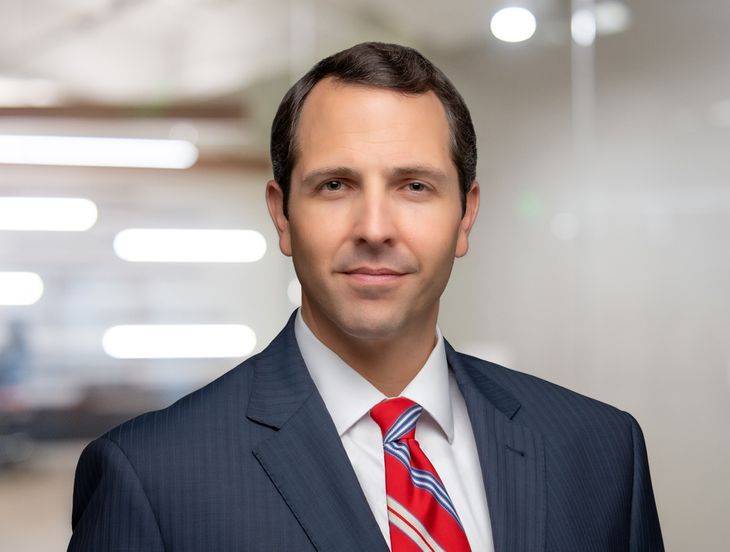WEB EXCLUSIVE: November 2019: The Top 12 Labor And Employment Law Stories
Insights
12.02.19
It’s hard to keep up with all the recent changes to labor and employment law. While the law always seems to evolve at a rapid pace, there have been an unprecedented number of changes for the past few years—and this past month was no exception.
In fact, there were so many significant developments taking place during the past month that we were once again forced to expand our monthly summary well beyond the typical “Top 10” list. In order to make sure that you stay on top of the latest changes, here is a quick review of the Top 12 stories from last month that all employers need to know about:
- Expect A Trio Of Federal Joint Employment Rules In December – Joint employment took center stage during the November 20 release of the Fall Regulatory Agenda, as three separate federal agencies announced plans to move forward with revised joint employment rules in December. While the Department of Labor and the National Labor Relations Board had already released versions of their draft rules, it came as somewhat of a surprise to see the Equal Employment Opportunity Commission also announcing that it would weigh in on the topic before the end of 2019. With the uncertainty of an election year coming up in 2020, it appears that the agencies are kicking into overdrive in order to clarify joint employment standards as soon as possible (read more here).
- EEOC May Unveil New Pay Data Reporting Plans In 2020 – Employers may have to prepare for an entirely new pay data reporting requirement to be revealed in the new year, but you can expect that any such proposal would not be as cumbersome or invasive as the current system. The Equal Employment Opportunity Commission (EEOC) announced on November 20 during the release of the Fall Regulatory Agendathat it is considering initiating a rulemaking process that “may include a new reporting requirement by which employers would submit pay data or related information as reasonable, necessary, or appropriate for the enforcement and the Equal Pay Act.” But all signals point to this next version of pay data collection – which could be revealed in September 2020 – being more palatable to employers (read more here).
- Jury Shocker: 93 Million Reasons Why The ILWU May Soon Cease To Exist – A recent $93.6 million verdict from an Oregon jury has the potential to bankrupt a union that some describe as one of the strongest and most militant in the United States—the International Longshore and Warehouse Union (ILWU). The November 4 federal jury award in favor of ICTSI Oregon Inc., the former operator of a Port of Portland terminal, was handed down after allegations of unlawful boycotts carried out by the ILWU-backed dock workers, which caused significant damages to ICTSI’s business. What do employers need to know about this staggering jury award that threatens to upend a national labor law stalwart? (read more here)
- Supreme Court Ruling Clears Way For $350K Religious Bias Jury Award – Following a decision by the U.S. Supreme Courtseveral months ago allowing a former employee to pursue a religious discrimination claim, a Texas federal jury recently ordered her former employer to pay her $350,000. The November 1 jury verdict came after the Supreme Court permitted her to pursue a claim under Title VII despite her failure to include the claim in her original charge with the Equal Employment Opportunity Commission (EEOC). The verdict reaffirms the risks and significant costs employers face in defending a claim — even one never filed with the EEOC — if it does not move to dismiss a complaint for failure to exhaust or, at a minimum, include this as an affirmative defense when answering the complaint (read more here).
- Oregon Court Of Appeals Decides There’s No Such Thing As A Free Lunch – The Oregon Court of Appeals just held that employers may be held liable not only for failing to allowemployees to take meal breaks, but also for failing to ensure that employees take meal breaks to which they are entitled. This significant decision handed down on November 14 clarifies that Oregon employers have a legal duty to police their employees to ensure that they take their full meal breaks – merely providing employees with the opportunity to take such breaks is insufficient. Pursuant to the Maza v. Waterford Operations, LLC decision, if you fail to force an employee who works six or more hours to take a duty-free meal period for a continuous, uninterrupted 30 minutes, you might be responsible for paying the employee for the full 30 minutes (read more here).
- Department Of Labor Attempts To Fix Fluctuating Workweek – The U.S. Department of Labor announced a proposed rule on November 4 that would allow employers to offer bonuses or other incentive-based pay to employees whose hours vary from week to week. The proposal would clarify that payments in addition to the fixed salary are compatible with the use of the fluctuating workweek method under the Fair Labor Standards Act (read more here).
- U.S. Women’s Soccer Scores First Goal In Their Pay Equity Battle – A California federal judge granted the U.S. Women’s National Team an early victory in their pay equity battle against the U.S. Soccer Federation on November 11, granting class certification to a group of players who want to collectively assert their gender-related legal claims. While Judge Gary Klausner’s order is just the first of several hurdles the women’s team will have to overcome in order to successfully challenge the pay structure that they allege favors the men’s team, it is an important milestone in any class action (read more here).
- Federal Court Strikes Down HHS “Conscience Rule,” Sparking Heated Rhetoric And Potential Confusion – A New York federal judge struck down a rule that was about to permit the government to withhold federal funds from healthcare providers that don’t allow workers to refuse to perform procedures because they violate their religious beliefs or conscience. Judge Paul Engelmayer’s 147-page ruling, handed down November 6, has led to heated reactions and spin from both sides of the controversy. However, the decision may not have a big effect on the daily operations of healthcare institutions and employees who want to be excused from participating in certain procedures. Similar laws and accreditation requirements remain in effect (read more here).
- EEOC Pay Data Won’t Be Used Against Federal Contractors – In an announcement sure to please federal contractors, the OFCCP announced that it would not use any of the pay data gathered by the EEOC in this year’s expanded collection efforts for enforcement purposes. The November 22 releaseis just the latest example of the federal government’s taking active steps to diminish the pay data collection requirements forced on the administration following a surprise court ruling in March (read more here).
- Truckers Seek To Toss California’s New Gig Economy Law – We’re now just a few weeks away from the nation’s most stringent independent contractor misclassification lawtaking effect in California. But if a group of truck drivers have their way, the law will stall out before it ever gets on the road. The California Trucking Association filed an amended lawsuit in federal court on November 12 asking the court to block the new statute from taking effect, claiming that it violates federal law and would harm over 70,000 independent truckers who have chosen to be independent workers. It appears to be the first legal challenge to California’s AB 5, and all eyes will be on this litigation over the next month (read more here).
- Pennsylvania May Soon Require Employers To Disclose Pay Ranges To Applicants And Employees – The Pennsylvania House of Representatives introduced a bill on November 14 that would amend the commonwealth’s Equal Pay Law by requiring employers to provide pay transparency to applicants and employees alike, bringing Pennsylvania to the forefront of the pay equity discussion. While the measure has a long way before becoming law, it is well worth keeping an eye on this development – not only those with business in Pennsylvania, but those across the country who may find that their local jurisdiction might one day follow its lead (read more here).
- Court Blocks San Antonio Paid Sick Leave Law – Mere days before San Antonio’s Sick and Safe Leave ordinance was set to go into effect, the law was once again put on hold. In a November 22 ruling, Bexar County Judge Peter Sakai temporarily delayed the start of the paid leave ordinance, which was set to take effect on December 1. The law aims to require San Antonio employers to provide paid sick leave to an estimated 354,000 workers within the city. But a coalition of local business groups filed suit, contending that the ordinance violates the Texas Minimum Wage Act. The coalition sought – and received – an injunction from Judge Sakai to stop the law from taking effect while the lawsuit remains pending. The court has not yet set a trial date for the suit (read more here).
If you have any questions about these developments or how they may affect your business, please contact your Fisher Phillips attorney.
This Legal Alert provides an overview of specific legal developments. It is not intended to be, and should not be construed as, legal advice for any particular fact situation.
Related People
-
- Cheryl L. Behymer
- Senior Counsel
-
- Steven M. Bernstein
- Regional Managing Partner and Labor Relations Group Co-Chair
-
- Phillips L. McWilliams
- Partner
-
- Richard R. Meneghello
- Chief Content Officer
-
- Cheryl Pinarchick
- Senior Counsel
-
- John M. Polson
- Chairman & Managing Partner
-
- J. Hagood Tighe
- Partner and Co-Chair, Wage and Hour Practice Group
-
- A. Kevin Troutman
- Senior Counsel
-
- Alexander A. Wheatley
- Partner
-
- Sarah Wieselthier
- Partner










